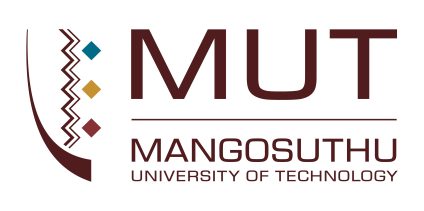Why Study Chemistry?

Chemists don’t only work in pharmacies! Chemistry – the science of studying, analyzing, processing and manipulating the elements – can be used in medicine, fuel, mining, forensics, law enforcement, industry, manufacturing, chemicals, fragrance, agriculture,, and food processing. A basic qualification in chemistry opens the door to a vast variety of careers in other types of chemistry such as organic, analytical, physical, inorganic and biochemistry. Or even further into nuclear, polymer, environmental, biophysical, or nano-chemistry. The list is almost endless and researchers are adding new types of chemistry all the time as new fields of exploration open up.
Career Opportunities
A chemistry qualification opens doors to jobs such as an academic researcher, a biotechnologist, a crime scene investigator, a nanotechnologist, a palaeontologist, a pharmacist, a colour or fragrance technologist, or a toxicologist. it is also a stepping stone to other jobs like consultant, a teacher or lecturer, a nuclear engineer, a patent attorney or a product/process development scientist.
About This Course

Diploma in Analytical Chemistry (3215061)
Admission Requirements
i) National Senior Certificate (NSC) with following rating code:
- Mathematics (4)
- Physical Science (4)
- English First Additional or Home Language (4)
ii) Senior Certificate or equivalent qualification with passes of at least:
- Physical Science D (HG)
- Mathematics D (HG)
- English First Additional or Home Language D (HG)
iii) Students who have successfully completed the access course will also be considered.
iv) Applicants from FET colleges and elsewhere must have the minimum qualifications of NQF4 in Mathematics, Physical Science and English.
Duration of Study: 3 years
Access Course: Analytical Chemistry
Admission Requirements
i) National Senior Certificate (NSC) with rating codes:
- Mathematics (3)
- Physical Science (3)
- English (3)
ii) Standard 10 Certificate (or equivalent) with a pass in:
- Mathematics E (SG)
- Physical Science E (SG)
- English E (SG)
iii) An N3 qualification including Grade 12 English, Mathematics and Physical Science and another language.
iv) An appropriate GCE Certificate
ADMISSION OF A CANDIDATE IS DETERMINED ON A SELECTION TEST
Duration of Study: 1 semester (six months)
PLEASE NOTE: THIS COURSE MAY NOT BE REPEATED


Access Course: Analytical Chemistry
Admission Requirements
i) National Senior Certificate (NSC) with rating codes:
- Mathematics (3)
- Physical Science (3)
- English (3)
ii) Standard 10 Certificate (or equivalent) with a pass in:
- Mathematics E (SG)
- Physical Science E (SG)
- English E (SG)
iii) An N3 qualification including Grade 12 English, Mathematics and Physical Science and another language.
iv) An appropriate GCE Certificate
ADMISSION OF A CANDIDATE IS DETERMINED ON A SELECTION TEST
Duration of Study: 1 semester (six months)
PLEASE NOTE: THIS COURSE MAY NOT BE REPEATED

Advanced Diploma in Chemistry (ADVACH)
Rationale for the Qualification
The qualification is needed because an environmental scan has shown that there is a paucity of similar qualifications in South Africa. Students who successfully complete will be able to take up positions in industry such as chemists, supervising technicians and technologists in product and process development and quality control. Industries such as petrochemical, pharmaceuticals, mining and metallurgy can employ graduates from this programme. This will provide learners with skills in advanced analytical techniques and expose them to advanced latest analytical instrumentation and general training in laboratory management.
The institution is situated in an “industrially-rich” area and students will not have to travel far to find employment. The proposed programme therefore addresses local needs and fills this gap of workers who are at a higher skill and competency level than those who have only a diploma qualification. Graduates can also take up further study opportunities at the postgraduate or Honours level where appropriate. In other words, as indicated earlier, the proposed programme is aligned to the natural progression route of the HEQSF.
The advanced theoretical knowledge that will be developed in students and the active or “hands-on” teaching and learning strategy that will be covered in the practical components will benefit students by improving their skills, competences and abilities in advanced analytical methods making them more employable. It will also benefit industry that employs students with this qualification by providing them with better-prepared personnel who have been trained to operate advanced instruments and analyses the data acquired thereof. Graduates of the programme will acquire advanced instrument operation skills that would allow them to work in research institutions and in research and development divisions of various industries.
Purpose of Qualification
The purpose of this programme is to develop highly skilled technicians with advanced knowledge of various analytical instrumentation used in analytical chemistry laboratories. On completion of the programme learners must be able to plan and execute an analysis with minimal supervision and also be able to diagnose instrument errors (trouble-shoot), provide basic maintenance, calibrate instruments and repair fundamental instrumentation faults.
Admission Requirements
Diploma in Analytical Chemistry or Equivalent.
Duration of Study: One year (full time) or Two years (part time).
Bachelor of Technology: Chemistry (3315000)
Being phased out
Admission Requirements
The National Diploma in Analytical Chemistry or equivalent.
Duration of Study: One year (full time) or Two years (part time).
